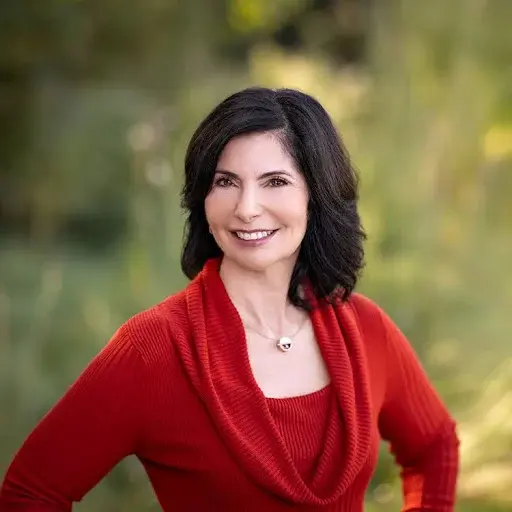We Teach the Skills That
Grades Can't.
Emotional strength. Confidence. Clarity.
We help kids grow the life skills they'll need long after school ends.
Why Families Choose Bloomster
Bloomster turns quick, engaging lessons into lasting skills—helping tweens communicate better, make smarter choices, and feel more confident every day.

How It Works
Simple steps. Real growth. Just 15 minutes a day.

Why We Built Bloomster
Because Life Skills Shouldn’t Be Left to Chance
Children are expected to develop confidence, resilience, focus, emotional control, and good judgment on their own. Parents are expected to guide them without support. We built Bloomster to change that.
The Experts Behind Our Courses
Meet some of the educators, psychologists, and coaches shaping Bloomster’s life skills curriculum

Dr. Kymberli Barker
Dr. Kymberli Barker
Dr. Barker is the mother of two fantastic young men, and they are her priority in life. She holds degrees in biochemistry, math, forensics, and psychology. She is a consultant and a professor at multiple colleges, including the Citadel, and Johns Hopkins Center for Talented Youth. She spent fifteen years in public education, prior. Her personal focus is child advocacy and she developed the Guardian ad Litem/(GAL)/CASA program for the Eastern Band of Cherokee Indians. She is tribally and state sworn as a GAL. Her favorite thing is being a mom.

Dr. Corina Weir
Dr. Corina Weir

Dr. Lisabeth Medlock
Dr. Lisabeth Medlock

Dr. Ashley Schoener
Dr. Ashley Schoener

Dr. Jim Dolson
Dr. Jim Dolson

Lauren Hudak
Lauren Hudak

Tag Along On The Journey,
With Several Others
Founder Podcast
Sample Lesson Preview 
Making Responsible Choices
Qualities of Responsible Decision-Making
Qualities of Decision-Making
Being responsible means we act with reflection rather than impulsiveness. Responsible decision-making requires us to pause and think carefully.
It’s crucial to analyze our options by considering the personal consequences and how they will affect others. We need to keep our values in mind throughout the process to guide our choices.
A responsible decision involves choosing an option that considers not only our immediate desires but also the long-term effects on ourselves and others. It requires us to think ahead and weigh the pros and cons before acting.
For example, a responsible approach if you’re deciding whether to study for a big exam or hang out with friends would be to balance both. You might choose to study first and then hang out, ensuring you stay on track with your grades while still enjoying time with friends. It also means thinking about how your choice impacts others, such as how it affects your grades, your friendships, or your future goals.
A smart step in any decision-making process is involving a trusted adult. You can learn about these responsible decision-making qualities alongside Drew, Payton, and Jordan.
Sample Lesson Preview 
Focused You: Manage Your Mind & Energy
Understanding Focus & Attention
Understanding Focus & Attention
Focus and attention are super important for learning and getting stuff done.
Think of focus as a mental "spotlight" that helps your brain lock onto one thing at a time.
But attention doesn’t last forever – it’s normal for it to fade after 10–20 minutes, especially at your age.
Cool stuff, like games or hobbies, makes focusing easier because your brain releases dopamine, which keeps you interested.
On the flip side, distractions, like checking your phone, can mess you up – it can take about 20 minutes to get back on track!
Sample Lesson Preview 
Developing SuperHuman Problem-Solving Skills
Problem-Solving Steps
Problem-Solving Steps
Facing a tough challenge? Whether it’s at school or in everyday life, problem-solving skills can help you tackle it! Here’s a simple, 5-step process to guide you:
- Define the problem – Understand exactly what’s wrong.
- Brainstorm solutions – Think of all possible ways to fix it.
- Research and choose the best option – Pick the solution that makes the most sense.
- Apply the solution – Put your plan into action.
- Evaluate the results – Did your solution work? If not, tweak it and try again.
You can solve any problem with confidence and creativity by following these steps. Ready to take on your next challenge? Try using the 5-step process and see how it works for you!
Sample Lesson Preview 
Mindful You: Living With Purpose
Navigating Emotions Mindfully
Why Naming Emotions Helps
Emotions are temporary, fleeting knee-jerk responses in the moment, and feelings are more sustained over time. When emotions feel overwhelming, our brain treats them like a tangled mess, making it hard to think clearly. But when we name our emotions – “I feel angry,” “I feel fear,” or “I feel happy” – we activate the logical part of our brain, which helps us process them instead of being controlled by them.
Try This:
Next time you feel overwhelmed, pause and ask yourself:
- What emotion am I feeling? (Use the big six emotions: anger, disgust, fear, happiness, sadness, surprise.)
- Where do I feel it in my body? (Tension in shoulders, racing heart, etc.)
- What can I do next? (Take a deep breath, reframe the situation, or simply acknowledge the feeling.)
Sample Lesson Preview 
Meditation Foundation: Breath & Self-Awareness
What is mindfulness?
When to Practice Mindfulness
You don’t need to wait for a stressful time to practice mindfulness. The practice of being mindful is available to you any time of the day! Taking a moment to take a deep breath during the course of your day, or stopping to admire a freshly bloomed flower is a way of practicing mindfulness. When you are slowing down and being present in the moment, you are being mindful.
